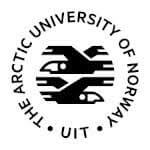The position
A PhD position in Humanities (history), with particular focus on historical cartography is available at the University Library. The position will be associated with Creating the New North (CNN), an interdisciplinary research group specializing in the political, economic, cultural and demographic history of the Arctic region in the Iron Age, Middle Ages and Early Modern Era, and the successful candidate will have a dual affiliation: the University Library and the adjacent Department of Archeology, History, Religious Studies and Theology.
The University Library at UiT houses a substantial collection of maps and books depicting the geography, cultures and communities of the Artic region printed in the late-fifteenth and sixteenth centuries. Working with this source material, the PhD project’s aims are to investigate the historical production and distribution of knowledge on the Artic region and contribute to the further analysis and dissemination of the university collection within the scope of digital humanities.
The objective of the position is to complete research training to the level of a doctoral degree. Admission to the PhD programme is a prerequisite for employment, and the programme period starts on commencement of the position.
The PhD fellow position is for a period of three years and full time studies with the possibility of an extension of the appointment period. If the doctoral dissertation is submitted for appraisal within 3 years or within 3,5 year, the PhD candidate is qualified for a completion grant for either 12 or 6 months. The completion grant should be used to further qualification measures such as courses in teaching in higher education, lecturing and other relevant work at the faculty. More information about the completion grant scheme here.
The PhD candidate will work from the University Library at UiT’s main campus in Tromsø and receive additional supervision, academic training and doctoral credentials from the adjacent Department of Archeology, History, Religious Studies and Theology You must be able to start in the position in within a reasonable time after receiving the offer.
Departmental affiliation
The University Library of UiT has a strong record as an innovative research-oriented library, with services for open access publishing, open research data and training in information literacy among its strong points. Over the years, the library has acquired substantial special collections of early modern printed books and maps. These collections were strengthened by the recent acquisition of a nearly comprehensive collection consisting of printed maps of the European High North spanning from 1481 to 1600. Today, the library boasts one of the finest map collections in Norway. It is this map collection that will form the basis of the PhD candidate’s project. The candidate will be part of the library’s unit for research and publishing support, a group of research librarians and IT engineers who have experience in developing digital services such as Open Polar (a search engine for open access publications and research data on the Arctic and Antarctic), Arkitekturguide for Nord-Norge og Svalbard (a portal for information on architectural objects in northern Norway and the Spitsbergen archipelago) and Aurorae Borealis Studia Classica (a series of digitized books on the northern lights, with summaries and biographical introductions on their authors).
The research group CNN is one of several research groups at the Department of Archeology, History, Religious Studies and Theology, where the PhD candidate will obtain their formal doctoral credentials. The research group, which consists of historians, archeologists and linguists at various stages in their careers, works with source material both from the Arctic and about the Arctic. In recent years, the group’s work has concentrated on religion and confessionalization, border delineation, trade and depictions of the Sámi in European intellectual history. The PhD candidate will benefit from the group’s expertise while also contributing new perspectives and insights derived from cartographic and written depictions of the Artic region, as well as methods honed from digital humanities research.
The project
The PhD project addresses the production and dissemination of knowledge on the Artic region through the medium of maps and the printed works in which they first appeared in the late-fifteenth and sixteenth centuries. There is great potential for further research on and dissemination of this rich source material. The maps are valuable cultural-historical sources that provide insight into Europeans’ changing perception of the Arctic region’s geography, topography and diverse communities and cultures. Many of the maps from the period were produced as illustrations in books with written descriptions of the region, which offer further insights into contemporary perceptions on Europe’s northernmost frontiers. By examining the maps, their makers and the intellectual contexts in which they were produced, the PhD project will shed light on Europeans’ growing curiosity in and knowledge on the Arctic and its inhabitants.
Works of art as well as carriers of scientific information, early modern maps are complex objects, carrying several layers of information. ‘De-coding’ some of this information by employing methods from digital humanities may further our understanding of the period and help us to envision not only the contexts in which the maps were used, and by whom, but also to understand them as cultural objects in their own right. The findings of the project should result in peer-reviewed articles as well as a theoretical reflection serving as introduction to the various articles when these are submitted for the doctoral evaluation. In addition to the articles-based dissertation, the candidate is expected to contribute to the online presentation and dissemination of relevant material from UiT’s special collections, in line with state-of-the-art digital humanities.
The scope and focus of the project will depend on the individual research interests and background of the successful applicant but should be in line with the goals outlined above. Applicants must therefore submit a preliminary project summary, not exceeding 10,000 characters in length (including spaces), outlining the project’s academic foundation, research questions and proposed methodology. The successful applicant’s final project description will be developed in cooperation with the project’s supervisors.
Qualifications
This position requires a master’s degree or equivalent in History or another field within the Humanities. If you are near completion of your master’s degree, you may still apply. Applicants must also be able to document fluency of in English.
It is considered an advantage if you:
- Have prior experience with digital humanities and online databases.
- Have reading comprehension in Latin and/or other languages used in the source material.
- Speak or are familiar with Norwegian or another Scandinavian language. This is because much of the work at the University Library and within the Creating the New North research group is conducted in Norwegian. Highly qualified applicants lacking prior competency in a Scandinavian language will be considered for employment but are encouraged to develop competency during their term of appointment.
We will also emphasize motivation and personal suitability for the position. We are looking for candidates who:
- Have good communication and interaction with colleagues and students
- Wants to contribute to a good working environment
Applicants must submit a project sketch with the academic basis for the doctoral project. The project description must not exceed 10,000 characters, including spaces. It must contain a description of the topic, research questions and a justification for the choices. The final project description will be developed in collaboration with the supervisor.
As many as possible should have the opportunity to undertake organized research training. If you already hold a PhD or have equivalent competence, we will not appoint you to this position.
Contact
For further information about the position, please contact Associate Professor Ian Peter Grohse: ian.p.grohse@uit.no
or Senior Academic Librarian Per Pippin Aspaas: per.pippin.aspaas@uit.no
or Head of Library Services Department Mariann Løkse: mariann.lokse@uit.no
More information and application here: https://www.jobbnorge.no/en/available-jobs/job/229007/phd-fellow-in-humanities-history-with-particular-focus-on-historical-cartography



 Αφίσα
Αφίσα Ανακοίνωση
Ανακοίνωση
